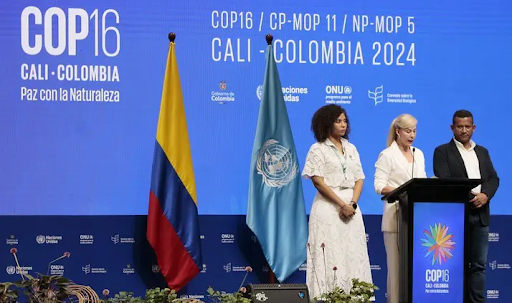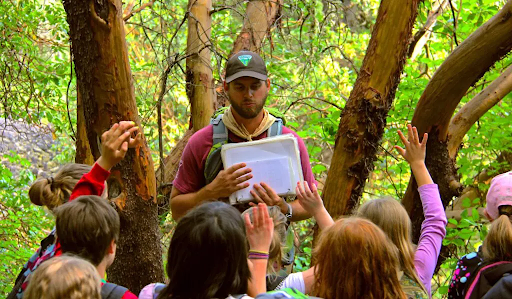An evidence synthesis on behaviour change and biodiversity for CBD COP16
Posted on Thursday 24 October 2024

This week marks an exciting milestone for a team of us at LCAB and beyond with the launch of our evidence synthesis, “Behaviour Change for Achieving the Kunming-Montreal Global Biodiversity Framework” (KMGBF) at the UN Convention on Biological Diversity’s COP16 in Cali, Colombia.
The Conservation and Sustainability Consortium of AcaDEmic Institutions (CASCADE) funded this important project, which brought together research and insights from national and international experts on how to inspire targeted behaviour change for biodiversity in line with the 2030 KMGBF targets.
As project coordinator, I had the privilege of leading over 20 academics, NGO practitioners, and government officials on this rapid review of the evidence on behaviour change for biodiversity conservation. Balancing diverse perspectives was both rewarding and, at times, challenging. We explored how behaviour change interventions have been designed, implemented and evaluated to protect biodiversity.
We selected interventions that were practical and not merely theoretical, with an evaluation component to show if behaviour changed due to implementation. Each intervention had to be linked to specific KMGBF targets to ensure relevance.
What stood out was how most interventions targeted individuals such as farmers, consumers, hunters, and fishers. While these efforts matter, it was concerning to see the disproportionate evidence base for behaviour change in individuals compared to few interventions aimed at organisations or governments. Interventions targeting communities and groups were prevalent, however many did not contain robust evaluation components, despite the importance of collective action.

Photo by Bureau of Land Management Oregon and Washington (Flickr / CC BY 2.0)
I found the variety of expertise involved truly inspiring. This global, collaborative effort was made up of partners from UK academic institutions: University of York, LCAB, University of Oxford, University of London Royal Holloway, and the University of Kent. Internationally, from the Institut Pertanian Bogor (IPB) Indonesia, and Universidade de São Paulo (USP) Brazil. Practitioners from TRAFFIC International, and the IUCN’s Behaviour Change Taskforce, and colleagues from the UK government at the Department for Environment, Food and Rural Affairs (DEFRA) and the Joint Nature Conservation Committee (JNCC).
Looking back, I feel proud of what we achieved in a short space of 8 weeks. The synthesis highlights the growing focus on behaviour change for conservation, but it also reveals gaps. There is a pertinent opportunity to shift attention to policy and group-level interventions, which can drive systemic changes needed to meet global biodiversity goals.
This evidence synthesis highlights that while there is growing interest in behaviour change for biodiversity conservation, there is still work to be done. By focusing more on moving beyond the individual, and using multiple strategies cohesively for behaviour change, we can increase the effectiveness of these efforts and drive the large-scale change needed to achieve transformative change. As COP16 discussions unfold, I’m excited to see how these findings will shape future actions. Stay tuned for updates!
Useful links
